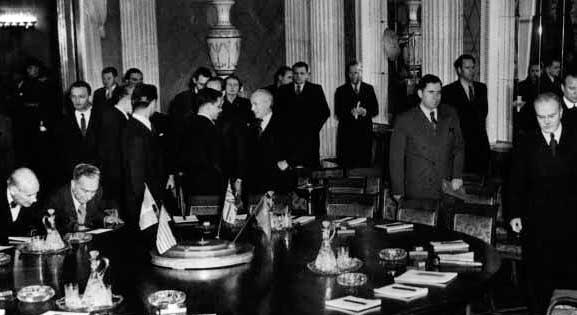Second Balkan War

Kavalla in Maceonia
On January 25th, 1954 the foreign ministers of the Untied States the Soviet Union, France and Great Britain met for the first time in five years to try to resolve their differences over the occupation of Germany and Austria. The meeting ended after three weeks without reaching any agreement.
The situation in Germany and Austria in 1954 was that they were still being occupied by the four powers of the United States, France, United Kingdom, and the Soviet Union, as had been agreed upon at the Potsdam conference. On January 25th of that year, the foreign ministers of the four countries met in Berlin for a conference to try to reach an agreement to end the occupation. However, the meeting got off to a rocky start when the Soviet Foreign Minister, Vyacheslav Molotov, suggested inviting the Communist Chinese to the talks, which was rejected by the American Secretary of State, John Foster Dulles, as China had no involvement in the occupation of Germany and Austria.
British Foreign Minister Anthony Eden then presented a plan in which free and fair elections would be held in Germany, supervised by the United Nations, in order to elect a national assembly. This national assembly would then write a constitution and negotiate a peace treaty with the occupying powers, who would then withdraw, leaving behind a free and democratically elected German government.
The Soviet Union supported this plan, but with the caveat that they opposed the United Nations supervising the elections. Without this provision, it was unlikely that an agreement could be reached, as Dulles pointed out that the Soviets had manipulated a recent East German election. After three weeks of meetings, the conference ended without any agreements being reached.
 >
>